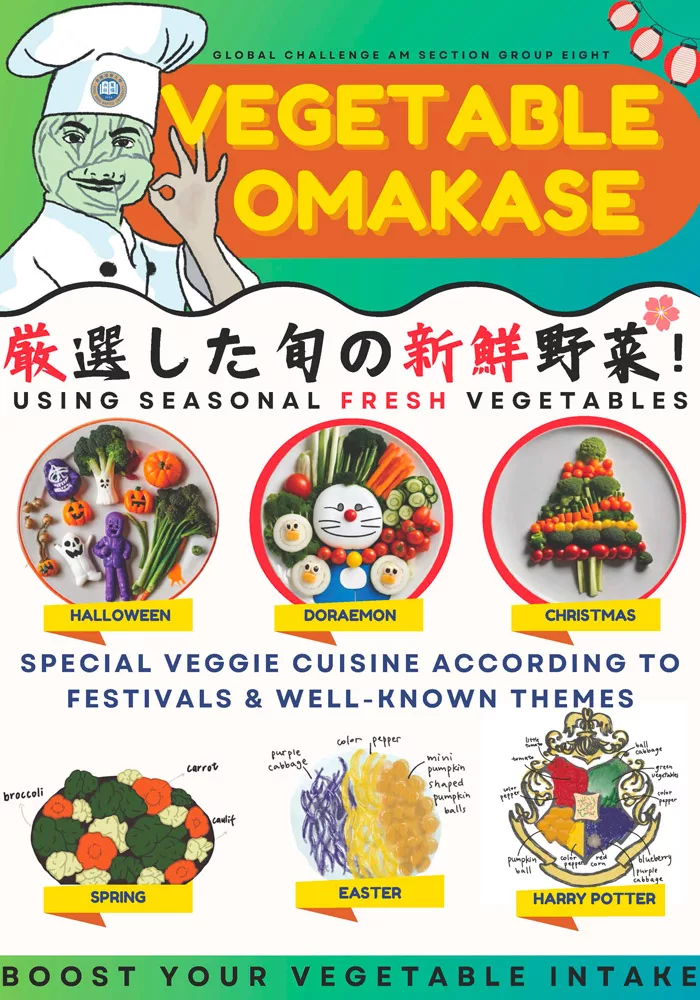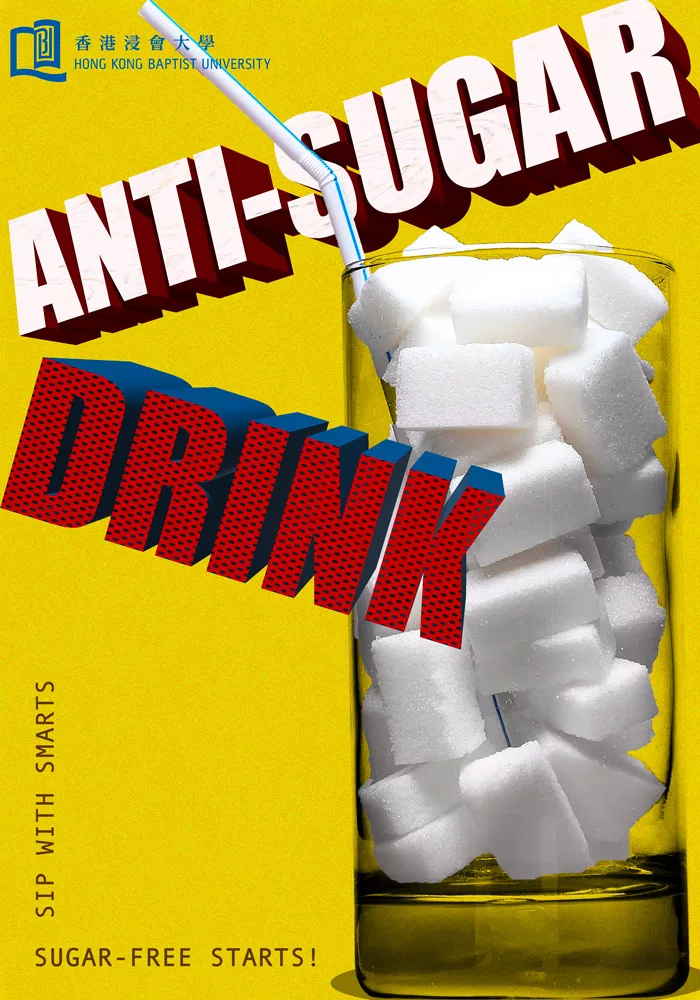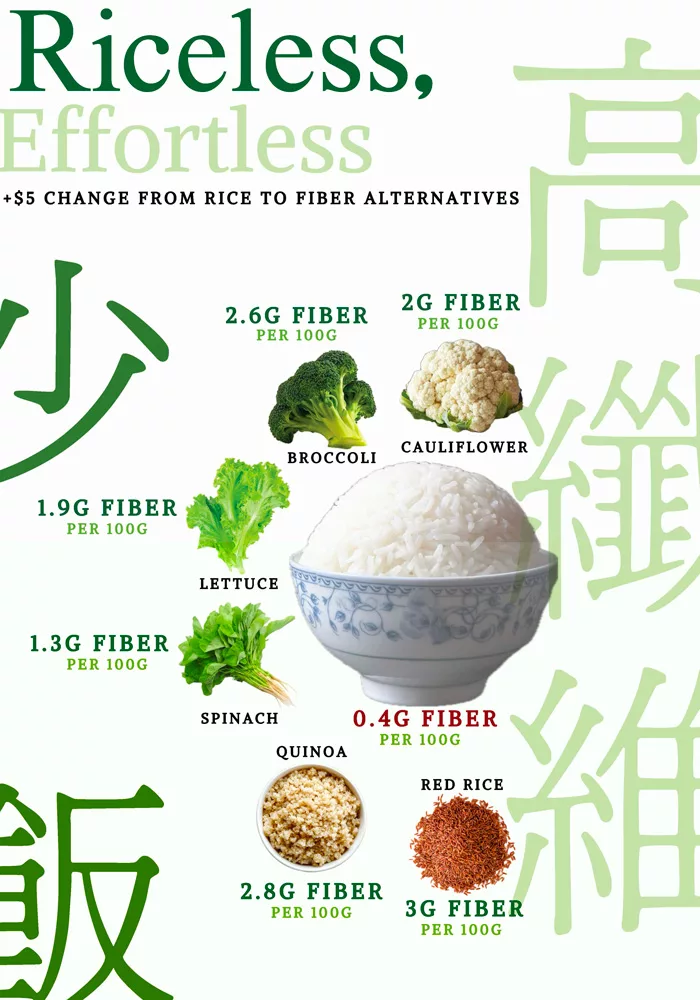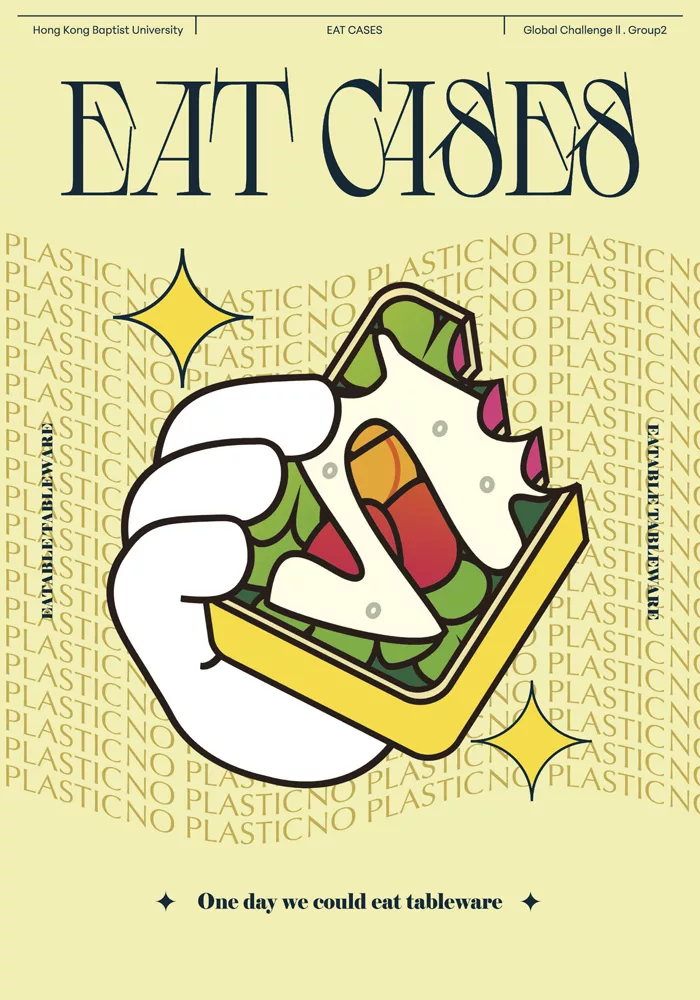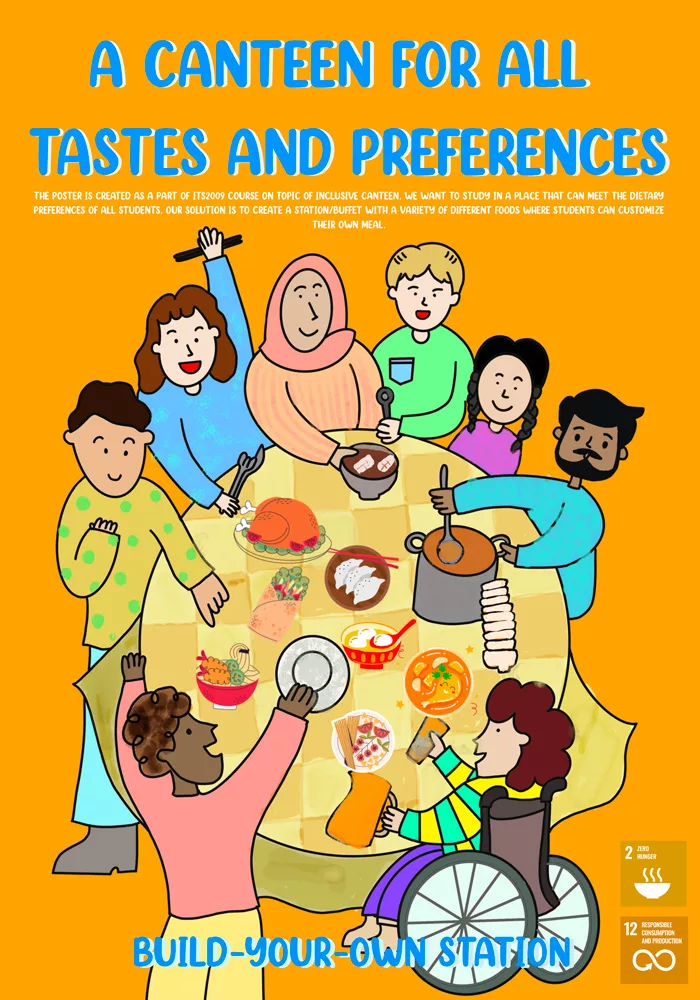In the brand-new Global Challenges course at the Hong Kong Baptist University on sustainable eating, our transdisciplinary students came together to design canteen food futures.
Our plates and the planet are connected, the way we eat affects the health of our bodies as well as the environment. In these poster designs, you will see how the students imagine better food futures – starting from their university canteen.
#1 More plants, less animals
Meat production is resource intensive, and generates nearly 15% of all man-made greenhouse gas emissions. Changing to a more plant-based diet and eating seasonal can help reduce the pressure on the environment. →
#2 Real Food
So much of what we eat is ultra-processed– from the sliced white bread, luncheon meat to the cereal, biscuit and crisps, these foods contain empty calories with zero nutritional value, in fact ultra-processed food is also known as industrially formulated edible substance. →
#3 Less sugar
Related to the above is the danger of consuming sugar in our drinks. Did you know a 500ml of lemon tea contains 75g of sugar … that’s almost 19 cubes of sugar! →
#4 A varied diet
Eating a healthy and varied diet is better for our health as well as the planet. Overconsumption causes unnecessary strain on the food system and not providing us with the diverse macro and micronutrients our bodies need. →
#5 Waste less
Finally, throwing away food is bad for the environment and a waste of the natural resources that went into its making. Reducing waste is key to a sustainable food future. →
#6 Diversity
Last but not least, access to sufficient safe and nutritious food that meets the dietary needs and food preferences for an active and healthy life is an essential part of food security. A university is a microcosm of society, so we will start with our home base! →

